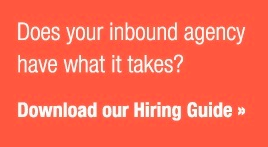 More consumers are using social media to get health plan information, investigate treatment options, and share experiences with friends and families. In fact, a 2012 PricewaterhouseCoopers study found that 42% of respondents say they "trust health information posted online through social media by a health insurance company." The study also found that "24% have posted about their health experiences using social media."
More consumers are using social media to get health plan information, investigate treatment options, and share experiences with friends and families. In fact, a 2012 PricewaterhouseCoopers study found that 42% of respondents say they "trust health information posted online through social media by a health insurance company." The study also found that "24% have posted about their health experiences using social media."
These figures may not sound particularly impressive, until you consider two related factors. First, the survey was conducted over two years ago. And secondly, the survey was conducted before the Affordable Care Act really kicked in. Things have obviously changed quite a bit in the last 24 months.
Ultimately, health plan providers know first-hand that social media is becoming an increasingly important customer engagement channel. In the process, they need to tread carefully. Social media is fraught with privacy concerns — a problem all the more acute in health care industry. Therefore, we'd like to pass along some rules for social engagement for health plans and providers. Here they are:
Err on the side of privacy. Social media should be used to share helpful medical information that promotes quality health care — not information pertaining to specific policyholders. Never, under any circumstances, publish personal or policy information, health plan, or anything specific to unique customer.
Be objective and refrain from overt commentary. The Affordable Care Act remains a contentious topic for many Americans. Regardless of your opinions on the matter, keep them to yourself. Your brand's social media profiles shouldn't be a platform for personal political views.
Don't make policy suggestions. If a follower asks, "What plan should I select?" don't take the bait. Doing so will set a bad precedent and give the impression that your company will happily select plans for policyholders. Instead, provide customers with information on plans available and remind them to select based on their health care needs, budgets, and risk tolerance.
Stay engaged. Your social media sites should help customers. In the process, you'll inevitably get questions about plans, policies, and other requirements. Make sure to respond to these concerns quickly, politely, and effectively. Go the extra mile in addressing customer concerns and don't be afraid to ask, "Was this answer helpful?"
Don't impulsively respond to a negative comment. Try as you may, you will likely come across the occasional negative comment, whether it’s about your company or the ACA. Since you are trying to exude trust and expertise, you don't want to come across as impulsive or short-tempered. So take a deep breath, and address each comment on a case-by-case basis. Click here if you need tips on how to respond.
Establish a company-wide policy and train accordingly. One rogue or careless employee posting patient information on Facebook can sabotage your best-laid plans. Therefore, establish a formal social media policy and make sure everyone is on board. It isn't the most electrifying document, but we encourage you to check out "Social Media in Healthcare: Privacy and Security Considerations." The Health Information and Management Systems Society, a non-profit organization that looks at the use of information technology in the health care field, put this helpful report together. It spells out the risks posed by social media, how you can avoid them, and how to incorporate mitigation strategies in your company's policy.
Now it's your turn. Does your firm have established policies for social media for health plans? How were these rules selected? Have you experimented with paid social media advertising?




